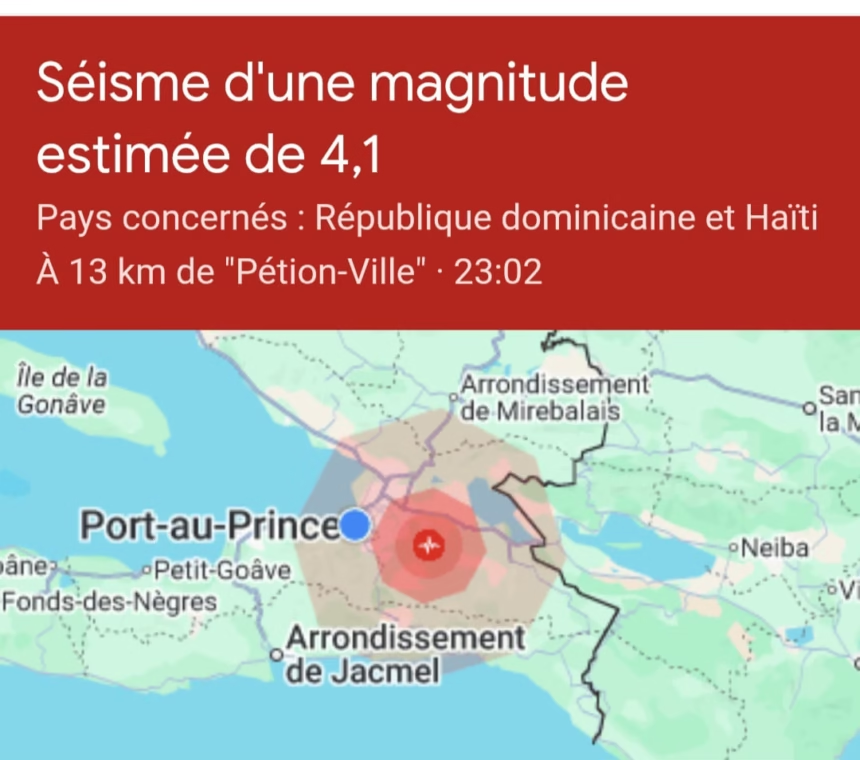A 4.1 magnitude earthquake struck the Port-au-Prince metropolitan area late Monday night, August 4, at approximately 11:02 p.m. local time, according to seismic data. While no major damage was immediately reported, the tremor has reignited fears among residents already grappling with an unprecedented security and humanitarian crisis.
A Moderate Quake, Heightened Anxiety
The quake’s epicenter was located 22 kilometers east of the capital at a shallow depth of 18.1 kilometers. According to VolcanoDiscovery, the relatively shallow depth meant the shaking was felt more strongly near the epicenter than a deeper quake of similar magnitude would have been.
Mild shaking was reportedly felt in Pétion-Ville (8 km from the epicenter), Croix-des-Bouquets (9 km), and Kenscoff (10 km). The tremors also reached Delmas (11 km), Port-au-Prince (15 km), Thomazeau (20 km), Fond Parisien (24 km), and Gressier (34 km).
Though the earthquake lasted only a few seconds, it triggered brief panic in several parts of the capital. While no structural damage was reported, many residents expressed concern over the vulnerability of local infrastructure, often weakened by poor construction standards and the lack of earthquake-resistant regulations.
“We felt the ground shake, and everyone ran into the streets, afraid buildings might collapse,” said Steeve, a resident of Delmas.
Another Delmas resident, visibly distressed, added:
“With everything going on right now, you don’t even know what to fear anymore—gangs, shortages, and now earthquakes.”
Growing Insecurity Deepens the Crisis
The tremor comes at a time of acute instability in Port-au-Prince, where violent gangs continue to tighten their grip, paralyzing the capital with extortion, kidnappings, and blockades. The growing insecurity has severely hindered access to humanitarian aid and basic services.
Authorities, already overwhelmed by the security crisis, may struggle to mount an effective emergency response in the event of a stronger quake or natural disaster.
Haiti remains haunted by the memory of the devastating 7.0 magnitude earthquake that struck in 2010, killing over 250,000 people and exposing the country’s vulnerability to seismic activity. That tragedy underscored the critical need for disaster preparedness—an ongoing challenge in the current climate of chaos and dysfunction.
Fifteen years later, the country’s reconstruction remains largely incomplete. Instead, Haiti finds itself facing a far more complex and deteriorated situation, driven by political instability, gang violence, and a mismanaged international aid system that has largely failed to deliver lasting impact.
https://ctninfo.com/?p=35949&preview=true







